Best taken before training. How to eat before training to gain weight or lose weight. How to eat before a cardio workout
Eating before exercise energizes you and helps you train harder and more energetically, while eating after exercise helps with muscle recovery. It is not always possible to eat a full meal 1.5 hours before sports or 45-60 after their completion. In such cases, have a light 150-200 calorie snack 30-45 minutes before you start. There is no need to have a special snack if you ate about 1.5-2 hours ago. Excess and weight gain. Don't think that everything will burn out during training. Most people burn fewer calories than they think. On average it is 300-400 kcal, no matter what the devices show. Take a snack if you really need it.
Different types of sports activities have different requirements for the distribution of meals before training. A snack before yoga classes will be superfluous, but before strength training it will come in handy.
The key to a pre-workout snack is protein and carbohydrates. Carbohydrates prevent premature depletion of muscle glycogen, which will allow you to exercise intensely. Proteins prevent muscle breakdown. And the meal itself reduces the level of cortisol - the stress hormone, which begins to be actively produced after hungry sports activities (calorizer). - it destroys muscle tissue, causes.
Fats slow down digestion. You run the risk of feeling heartburn, bloating, nausea, or pain when exercising. There should be no fat in the snack.
Choose from quickly digestible carbohydrates or a small slice. There should be few carbohydrates. Choose lower carbohydrate foods. better . better . better .
Excess carbohydrates create a high glycemic load on the body. If you have a bad workout, you risk feeling weak, apathetic, and lethargic. By the way, obese and sedentary people have low sensitivity to insulin.

A post-workout meal should take place no later than 4-5 hours after the previous meal. This figure was reached by researchers Alan Aragon and Brad Schofield, who studied the effect of nutrition around training on recovery.
Let's say you ate at 15:30, started training at 17:00 and did 60 minutes. Let's add time for changing clothes - you left the hall at 18:30. You need to eat food within 60-120 minutes (calorizator). Many people come home and eat their planned dinner. If dinner takes a long time to prepare or you are not going home, you need to make a snack.
The main component of the snack is protein, since it is necessary to saturate the muscles with amino acids. Carbohydrates are an additional component. Their presence in a post-workout snack is not so important. Much more important is their number per day, that is. For carbohydrates, choose fruits, berries, vegetables and bread, but make sure that the carbohydrate portion does not exceed the daily allowance.
Your post-workout meal may contain some fat. They slow down digestion, which means you'll feel full longer. Good sources are a small handful of nuts, fats from eggs, fermented milk products, provided that they fit into the BJU.

You can fit sports into your routine so you don’t have to worry about snacking. Sometimes it is better to have a snack than to feel very hungry and uncomfortable. The main thing is that snacks fit into your daily calorie and dietary requirements and do not create a burden on digestion.
To achieve significant results when training to lose weight, you must not only exercise regularly, but also eat right before and after exercise. If you do not pay due attention to this, then you can violate the fundamental condition for losing weight, which is that the number of calories expended per day should be greater than those consumed. No less important is the energy value of food - the balance of carbohydrates, fats, proteins.
Reducing calories by fasting will not have long-term effects. The lack of calories necessary for normal maintenance of life will lead to restructuring of the body. To balance metabolic processes, it will stop breaking down fat cells and will begin to store fat even from the minimum amount of food consumed.
People who are chronically undernourished are unable to lose fat due to:
- slow metabolism due to “storage” of fat;
- low muscle mass, which is not enough for fat burning.
Of course, you don’t have to pay much attention to your nutrition if you burn more calories than you consume. But if you approach the issue more responsibly, the effect will exceed all expectations.
Nutrition before and after training is affected by:
- class time;
- type of exercise - aerobic or strength.
The most fat is burned during a morning workout on an empty stomach, when glycogen stores are at a minimum, and the energy needed to perform exercises is released from the fat depot.

If it is impossible to exercise on an empty stomach due to attacks of dizziness or for some other reason, you need to have something to eat half an hour or forty minutes before training. It should be light food, for example, bread with tea, banana with coffee. People exercising during the day or evening should pay attention to the last meal.
Properly selected food should contribute to:
- reducing muscle glycogen depletion;
- reducing the level of protein breakdown;
- decrease in cortisol concentration.
The correct ratio of protein and carbohydrates allows you to achieve this.
An hour or an hour and a half before playing sports, it is recommended to consume complex carbohydrates - rice, oatmeal, pasta, which allow you to get a supply of energy for a long time. When you can’t eat a hearty meal, and your strength is almost running out, thirty minutes before class you need a source of fast carbohydrates - dried fruits or coffee and a banana, which will provide strength and energy for a good and intense workout in a short time.
Fats in food consumed 60-90 minutes before exercise should be kept to a minimum. Carbohydrates and muscle-building proteins should predominate. In the morning you can drink a smoothie or milk, have a snack with an apple, banana, almonds. Caffeine, which promotes the release of fat cells, will help you cheer up. The main thing is not to overdo it with protein. Excess of it can cause drowsiness.

There are two approaches to nutrition after exercise. The first involves eating food within 30 minutes, and the second involves waiting two hours. And to understand which one is more suitable for those who want to lose weight, you need to understand the characteristics of each.
Maintaining a two-hour pause
The process of fat burning continues even after the end of the workout, ending only after a couple of hours. And if you limit yourself exclusively to water, you can say goodbye to extra pounds much faster. This approach also has a drawback. Along with fats, muscle tissue can also be lost.
Eating does not allow this, allowing the body to recover and not lose fat and muscle mass along with it. Preference is given to protein foods with a small amount of fat and carbohydrates, which contributes to:
- reducing cortisol;
- supplying glycogen used up during training;
- relieving fatigue and muscle tension;
- delivery of protein to restore muscle tissue.
To achieve this, you need to eat within 30-60 minutes. In this case, the number of calories should be no more than half of those expended during training. Only those people for whom muscle mass does not matter at all can give up food completely.
Eating in the first half hour

Important for those who want to not only burn fat, but also have well-developed muscles. The energy value of food is calculated in a ratio of 60 to 40. After aerobics, this is a menu consisting of 60% carbohydrates and 40% protein, and after strength training - vice versa. If both types of loads are performed in one session, preference is given to the nutrition of the second option (60% protein and 40% carbohydrates).
Prohibited products include:
Caffeine
It interferes with the absorption of protein and glycogen overload, which negatively affects the recovery of the body. Cocoa, coffee, tea, chocolate and other products containing it should be completely excluded from the diet in the first two hours after training.
Fats
Reduces the rate at which carbohydrates and proteins enter the blood. It is necessary to carefully monitor the fat content of protein foods that are included in the post-workout menu. You can’t eat fatty cottage cheese (5%), milk isolate (2.5%).
After your workout, you can drink a whey protein shake. Liquid food is well absorbed and digested. Those working out in the gym can have a snack at home. If preference is given to more glycemic foods, fish, potatoes with herbs, or chicken with rice are suitable. You can always drink the right ratio of protein and some source of carbohydrate.
An excellent option would be salmon or other red sea fish fried in olive oil. The fillet is rubbed with lemon juice, basil, garlic, pepper and salt, left for a quarter of an hour, and then fried until it is browned, served with lemon wedges.
Many people are afraid to eat after going to the gym, believing that this contributes to weight gain. In fact, if you count calories, the kilograms will not come back.
Video review
 Can you eat carbohydrates after a workout?
Can you eat carbohydrates after a workout?
Proper nutrition is the most important factor in achieving your bodybuilding and fitness goals before training. Success depends 60 - 70% on nutrition, and only 30% depends on exercises and training programs both in gaining muscle mass and in losing weight, that is, burning fat.
This article will teach you all about proper pre-workout nutrition, so please read the information provided here very carefully.
Please note: this article only covers the basic requirements and rules. But all people are different and based on this information you can create an ideal nutrition plan and tailor it to suit you.
before training on the goals and intensity of training
The intensity of the exercise determines which energy source the body will use. It is more common to use a combination of fats and carbohydrates in the body, but the intensity of the workout will affect their balance.
The main source of energy during heavy weight training is carbohydrates. With aerobic exercise for weight loss, fats and carbohydrates will participate in the energy supply of the body in equal measure.
When to eat before training: meal times
The expression “before training”, for experienced athletes, means not 5 minutes before starting classes in the gym. With a full stomach, physical activity will slow down the digestive processes, because blood from the organs will go into the muscles, and you will also be disturbed by drowsiness, belching, and heaviness in the stomach. That's why you need to eat no later than 2 hours before before the start of the workout.
And training on an empty stomach will not take place at the required level of intensity due to the lack of resources in the body. Therefore, you should always eat before training.
If you didn’t manage to eat on time, then you can eat something easily digestible and energetic, for example, some kind of sweet or small fruit, or drink a gainer. Half an hour before the start of your workout, you can eat a small piece of fruit, a small portion of low-fat cottage cheese, light yogurt, and half a portion of porridge.
What to eat before training
Before starting a workout, you need to consume carbohydrates to fill glycogen stores that will be used by the muscles during the workout itself. Eat a small portion of proteins, which will be used by the body as sources of amino acids for muscles, creating the so-called anabolic “precondition”. Fats should be absent from the pre-workout menu because they slow down metabolic processes, gastric emptying and the rate of absorption of other nutrients such as protein and carbohydrates.
Calorie content and volume of food
When training to gain mass, not eating enough before training can lead to feelings of hunger and energy will run out much earlier than the end of training. But increasing your caloric intake before training is also a bad idea. You need to eat food as you would for a regular breakfast or lunch.
The amount of energy a person expends is influenced by many factors:
- Age
- Amount of muscle and fat mass, etc.
The optimal caloric intake before training should be:
- 200 kcal for women
- 300 kcal for men
Carbohydrates
Before training, you need to consume 40–70 grams of slow carbohydrates. They are so called because they have a low rate of breakdown into monosaccharides, which serve as the body's most preferred source of energy. Due to this, foods containing slow or complex carbohydrates feed the body with energy for several hours.
About 65 grams per 100 grams of product: natural rice, oatmeal, durum pasta, buckwheat and other cereals.
40-60 grams of carbohydrates per 100 grams of product: rye or bran bread, beans, peas, vegetables
10-40 grams of carbohydrates per 100 grams of product: sweet curd cheeses, potatoes, beets, grapes, apples, natural fruit juices.
Squirrels
In addition to carbohydrates, your workout day meal should contain protein to maintain an anabolic state and reduce muscle breakdown. Proteins are a source of amino acids necessary for the restoration and construction of muscle fibers.
15-30 grams of proteins per 100 grams of product: veal, beef, pork (lean), chicken, turkey, trout, cheese, cottage cheese, chicken eggs.
5-15 grams of proteins per 100 grams of product: milk, sausage, goose meat, salami.
For one meal you need to consume 20-30 grams of protein from food. That is, in one sitting, all products in total should provide 30 grams of protein.
Fats
The diet of any person, not just an athlete, should contain fats of vegetable origin no more than 10% of the daily food intake.
Fatty foods take a long time to digest and interfere with the absorption of other nutrients into the blood, so you should not eat them before training. You need to consume fats of plant origin, such as omega-3 fatty polyunsaturated acids.
Water
Water is an integral component for any person, and even more so for an athlete. Monitor your fluid intake throughout the day to ensure it is at least 2 liters. An hour before training, a man needs to drink about 800 grams of water, and a woman – 500 grams. Also, during classes, you also need to consume water in small sips, because during classes you lose a lot of fluid.
Salt
The electrolyte salt balance should not be disturbed. During exercise, especially aerobic exercise, many minerals are lost. Therefore, you can drink mineral waters or add salt to your water before training to restore electrolytes.
Pre-workout nutrition to gain muscle mass
To increase muscle mass, you need to consume enough carbohydrates before strength training. 2-2.5 hours before anaerobic training you need to consume slow or complex carbohydrates. The diet should also include. During and immediately after training, proteins cannot yet be used for the restoration and synthesis of muscle fibers, but they can protect muscles from destruction.
30 minutes before training you can eat:
- one large fruit
- berries with a low glycemic index (apple, pear, strawberry or any other berries
- wash down with a protein drink, preferably whey protein, because it is absorbed faster (0.22 grams of whey protein per 1 kg of body weight).
Pre-workout nutrition for weight loss
If you need to lose weight, that is, burn body fat, then you need to ensure that your calorie expenditure exceeds your consumption. But this does not mean that you don’t need to eat before training to lose weight. If you want to lose weight, then you need aerobic training for weight loss .
As with bulking, when losing weight you need to eat 2 hours before training. But this time the amount of carbohydrates needs to be reduced to 15-20 g, and the amount of protein consumed to 10-15 g, so that there is no excess glycogen (glucose) in the muscles. Take the same complex carbohydrates.
Without eating before training, you will not be able to train at the intensity necessary to burn fat. And if you eat heavily and shortly before training, then you will waste the energy of food, not excess fat.
Before training for weight loss, you need to make a meal with a total composition of 15 grams of carbohydrates (for men) and up to 10 grams of carbohydrates for women, as well as protein foods, for women it will be optimal to get up to 7 grams, for men 12-15 grams. Such nutrition will give the body energy to maintain the required intensity at the beginning of the workout, but it will not be enough and the body will begin to break down fat deposits to obtain additional energy. If you use, then the diet needs to be adjusted taking into account the characteristics of the diet.
As an additional stimulant, 30 minutes before training you can drink a glass of strong green tea or coffee without cream. This will increase the secretion of epinephrine and norepinephrine, which mobilize fat from fat cells so that muscle cells can use it as energy.
Conditions that must be followed to lose weight:
1. Be sure to eat before training
The body needs energy to perform any work, and for its functioning it also needs energy, which it receives from food. And if you don’t eat, then your body will not have the resources to carry out training at the level to get the desired result.
2. The athlete should have a meal 2 hours before the start of training.
Firstly, it is difficult to train on a full stomach because of the feeling of heaviness and drowsiness.
Secondly, undigested and unassimilated food will not allow the body to use internal resources, that is, burn fat.
3. Reduce the amount of protein and carbohydrate-containing foods if you want to lose weight, and if you want to gain weight, then increase
Proteins and carbohydrates are nutrients that need to be manipulated depending on your goals: do you want to lose weight or gain weight. Therefore, increase or decrease their consumption depending on the desired result.
Pre-workout protein
It's always easier and faster to get the required amount of nutrients from a shake. It is easier and more convenient to consume and is absorbed faster. Therefore, before training, you can take one serving of a protein shake or gainer 1 hour before, or even 30 minutes before.
Is it possible to eat during training?
During training, you can consume fast carbohydrates or BCAA amino acids for additional fuel. They will protect muscles from destruction and add strength.
Pre-workout foods
Below are examples that combine protein and carbohydrate foods; you can alternate these options depending on your taste preferences:
- Poultry (turkey, chicken breasts) with rough bread or rice or pasta
- Lean fish and potatoes
- Lean meat with potatoes or pasta
- Eggs with porridge
- Cottage cheese with bread
Immediately after training You can eat almost any easily digestible food, because it will go towards restoring the energy spent during training. Such products could be:
- fruit juices
- fruits - watermelon, banana, pineapple, mango, apricots
- fruit cocktails
- sports drinks - gainers, proteins, post-workout complexes, energy bars.
You don’t need to eat too much after a workout, and it’s unlikely that you will be able to do so when all the blood has gone into the muscles and it’s not only that you overeat, but it’s hard to breathe.
Nutrition before morning workout
If you prefer to train in the morning, then after waking up you need to drink a protein shake and add 5-8 grams of BCAA to it. Or you can eat something easily digestible, such as a piece of cake or pastry. Other foods are not very suitable before a morning workout, because they take a long time to digest and the body will not receive energy from them for training.
But immediately after training, it is advisable to consume a sufficient amount of proteins and carbohydrates from regular food.
The Best Meals Before and After a Morning Workout:
- poultry (chicken breasts, turkey) with wholemeal bread or rice
- lean meat with potatoes or pasta
- cottage cheese with wholemeal bread
- lean steak with potatoes or fresh vegetables
- egg white omelette with oatmeal
- lean fish with potatoes or vegetables
Sample pre-workout diet
What to eat before training each athlete must determine for himself based on his personal experience. But we can highlight the basic principles: solid food can be consumed 4 hours before the start of training, a carbohydrate shake or foods containing fast carbohydrates - 2-3 hours before training, and the water-salt balance must be restored an hour before training.
1 hour or less before training
- - fresh fruits: apples, watermelons, peaches, grapes, oranges and/or
- - energy jams (gels)
- - up to 1 cup of sports drink
2 - 3 hours before training
- - fresh fruits
- - bread, bagels, pasta
- - yogurt
- - water
3 - 4 hours before training
- - fresh fruits
- - bread, bagels
- - pasta with tomato sauce
- - baked potato
- - energy bar
- - cereal with milk
- - yogurt
- - bread/sandwich with peanut butter, meat or cheese
- - water
Caffeine pre-workout and performance
Caffeine is used by athletes as a stimulant of the central nervous system, to improve its functioning and neuromuscular communication. There is information that caffeine can increase endurance and improve the breakdown of fats to obtain energy for the work of muscle cells. This theory is not supported by research, but you can do a little experiment and find out if it works for you. Coffee can be used as a central nervous system stimulant, but here you must proceed from the state of your health (heart function and blood pressure).
Foods to Avoid Before Workout
This has already been mentioned above, but I will remind you once again that fatty foods before training are a bad option. It is poorly digested and prevents carbohydrates and proteins, which are needed to feed the body with energy, from being absorbed into the bloodstream.
Foods that are harmful to training include:
- Fat meat
- Donuts
- Fried potatoes
- Chips and any fast food
Only you can choose the optimal diet yourself, based on your personal feelings, based on practical experiences during the training process. And what works very well for your partner or even your coach may not be suitable for you personally. You will definitely have personal preferences in foods, body characteristics and metabolism, so experiment and find your proper nutrition before training.
A small example of a fitness menu plan
Fitness diet menu
1st day
Breakfast: 2 eggs (1 yolk, 2 whites), 100 g of oatmeal, 1 glass of orange juice, 50 g of low-fat cottage cheese. Second breakfast: fruit salad, low-fat yogurt. Lunch: 100 g boiled chicken, 100 g rice, green salad. Afternoon snack: baked potato, low-fat yogurt. Dinner: 200 g of stewed fish, salad, apple.
2nd day
Breakfast: 100 g of muesli, 1 glass of skim milk, 2 eggs, some fruit. Second breakfast: 1 glass of carrot juice, 50 g of cottage cheese. Lunch: chicken salad (150-200 g of meat), 1 potato, apple. Afternoon snack: low-fat yogurt, fruit. Dinner: 150 g fish, 1 cup boiled beans, salad (can be served with low-fat salad dressing).
3rd day
Breakfast: 200 g strawberries, 100 g oatmeal, 2 egg omelet. Second breakfast: banana, 100 g of cottage cheese. Lunch: 200 g fish, 100 g rice, salad. Afternoon snack: fruit, yogurt. Dinner: 100 g turkey, 1 cup corn, salad.
4th day
Breakfast: 1 grapefruit, 100 g rolled oats, 1 glass of milk. Second breakfast: banana, 100 g of cottage cheese. Lunch: 150 g chicken, 50 g rice. Afternoon snack: 1 glass of vegetable juice, bran. Dinner: 120 g beef, a cup of corn.
5th day
Breakfast: peach, 100 g of oatmeal, omelette, glass of juice. Second breakfast: 1 glass of vegetable juice, 100 g of rice. Lunch: pita bread, 100 g turkey, apple. Afternoon snack: salad, 100 g of cottage cheese. Dinner: 100 g chicken, salad.
6th day
Breakfast: omelet, 100 g buckwheat, 1 glass of milk. Second breakfast: cottage cheese, banana. Lunch: 200 g fish, 100 g rice, salad, 1 glass of orange juice. Afternoon snack: baked potato, yogurt. Dinner: 150 g shrimp, vegetable salad.
7th day
Breakfast: apple, 2 egg omelet, 100 g buckwheat. Lunch; 100 g cottage cheese, peach. Dinner; 100 g beef, vegetable mixture (corn, carrots, peas). Afternoon snack: yogurt, 100 g rice. Dinner: 150 g chicken, vegetable salad.
Day 8
Breakfast: 1 grapefruit, 100 g muesli, 1 glass of skim milk, 2 eggs. Second breakfast: 70 g rice, 1 peach. Lunch: 120 g chicken, salad, half a plate of pasta, 1 glass of orange juice. Afternoon snack: yogurt, apple. Dinner: 120 g beef, vegetable salad.
9th day
Breakfast: omelet, 100 g buckwheat, fruit, 1 glass of orange juice. Second breakfast: banana, cottage cheese. Lunch: 100 g fish, 100 g rice, peach, 1 glass of orange juice. Afternoon snack: yogurt, 50-100 g dried apricots. Dinner: 200 g fish, baked potatoes, vegetable juice.
10th day
Breakfast: 1 glass of blueberries, 100 g of oatmeal, omelet. Second breakfast: 100 g low-fat cottage cheese, 50 g raisins. Lunch: 100 g chicken, baked potato, 1 glass of vegetable juice. Afternoon snack: low-fat yogurt, orange. Dinner: 100 g fish, vegetable salad.
11th day
Breakfast: a slice of watermelon, 2 eggs, 50 g of bran bread, 1 glass of orange juice. Second breakfast: banana, 50 g of cottage cheese. Lunch: 100 g rice, 200 g squid. Afternoon snack: 150 g fish, salad. Dinner: 100 g chicken, corn salad.
12th day
Breakfast: 1 glass of carrot juice, 100 g of oatmeal, omelette. Second breakfast: 100 g of rice with raisins and dried apricots. Lunch: 100 g chicken in pita, salad. Afternoon snack: low-fat yogurt, apple. Dinner: 120 g beef, 100 g broccoli.
13th day
Breakfast: grapefruit, 100 g of oatmeal, omelette. Second breakfast: 50 g of cottage cheese, peach. Lunch: 120 g turkey in pita bread, boiled corn on the cob. Afternoon snack: low-fat yogurt, apple. Dinner: 150 g fish, vegetable salad.
14th day
Breakfast: 1 glass of orange juice, 2 eggs, 100 g of muesli, 1 glass of milk. Second breakfast: banana, 50 g of cottage cheese. Lunch: 150 g chicken, green salad, 100 g rice. Afternoon snack: yogurt, peach. Dinner: 150 g of river fish, vegetable salad.
This is an example of a diet for athletes. This is approximately how you should eat, but you shouldn’t copy it, because you have your own weight, your own metabolism, and so on. Therefore, we proceed from our data and goals and create our own menu based on this. The simplest option is to reduce or increase the caloric content of food if you want to lose weight or gain weight, respectively.
And yet, the dairy products mentioned above must be low-fat. All meat products are boiled or can be baked. It is better to choose fruits that are not sweet and give preference to green ones. Drink only natural juices or don’t drink them at all. It's always better to drink plain water.
(25 ratings, average: 4.32 out of 5)0
Reader rating: 3.93 (39 votes) 0
by Notes of the Wild MistressVery different from a sports menu for weight gain. Therefore, even before going to the fitness room, you should clearly define what goals you are pursuing.
Most girls dream not of pumped up muscles, but of a thin waist and slender hips. If you do not think through your nutrition program before training and do not find out which foods are allowed and which, on the contrary, contribute to weight gain, you can nullify the efforts made during exercise.
"Nutrition before training for weight loss is the most important component of a bodybuilding program. Thanks to the right approach, you can lose weight much more effectively and quickly."
What can you eat before training?

In order to successfully exercise and burn a significant amount of calories, the body will require a certain amount of energy. Since energy reserves are used up very quickly during training, they should be replenished even before exercise.
The ideal option is to eat carbohydrate foods , which will provide the maximum amount of glycogen “fuel”. It is thanks to this replenishment that the body will have enough strength to exercise, and to obtain the missing energy it will begin to intensively break down fats.
Of course, you shouldn't attend a workout with a belly full of carbohydrate foods. You should consume food wisely, because the goal is weight loss, and not stupid work for wear and tear. Also, you should not force the body to starve in the hope that excess weight will go away faster, because all organs work using the energy of carbohydrates.
So what should your pre-workout diet be and what can you eat? Here are the main ones allowed products that will only bring benefits:
- Light porridge, for example, buckwheat, oatmeal;
- Fruit and vegetable salads (except for grapes, bananas);
- Dietary cookies, bread.
It is such healthy food that will increase the body's endurance and will not allow you to feel pangs of hunger in the gym.
What is acceptable to eat before training?

Protein foods are not an energy source for the human body. But without proteins, or rather without amino acids, it is impossible to build new body cells.
Even in an effort to lose weight, you should carefully monitor the maintenance of muscle mass, because fat deposits will not return only if they are replaced by elastic muscles (albeit in a smaller volume). In addition, it is the muscle fibers that work during exercise, therefore, their need for recharge greatly increases.
Therefore, experienced fitness trainers advise including in the menu before very intense exercise. small portion of protein food:
- Kefir;
- Omelette;
- A piece of boiled lean meat;
- Some boiled or steamed fish.
Perfect option - before classes, eat a portion of protein food with a vegetable side dish, or make a sandwich from whole grain bread with boiled meat and green salad. For many, a glass of kefir and a portion of fruit are enough to feel great in class.
There is also a list of additional products and supplements that will not be superfluous in your diet before classes. These include coffee , which increases overall tone and makes you feel more energetic, as well as special sports supplements with L-carnitine , other fat burning components. They enhance the effect of exercise and help you lose weight faster.
What foods should you not eat before class?
Be sure to avoid fatty foods before training. Fat is digested very slowly and does not leave the stomach, so you will have to wait too long: the workout is unlikely to be successful on a full stomach. In addition, you should not eat cakes and pastries and other “fast” carbohydrate foods, since they will bring nothing but fat on the waist and hips.
When and how much should you eat before exercising?

The portion of food should be normal when compared with the daily menu at that time of day. The last date when you are allowed to eat is 2 hours before class .
If we are talking about very light food (for example, a glass of low-fat kefir or greens), then it is permissible to consume it 1-1.5 hours before classes . If you eat later, your stomach may feel unpleasant, and calories from fat deposits will not be burned.
If the workout takes place early in the morning, you can eat 1 apple, a portion of light cottage cheese or drink a glass of green tea 40 minutes before class .
By following these simple rules, you can lose weight much faster, because a slender figure will begin to emerge after just a few classes!
Proper nutrition is one of the most important factors for effective exercise. There are many different opinions about what to eat before training. Some people think that you need to eat a lot, mainly protein foods. Others believe that you need to eat just a little, and it is better to drink a lot. It is important to understand that food not only serves as a building material, but also provides energy for the body to cope with physical activity. Therefore, it is extremely important to know the nutritional features before training. So, let's deal with this topic that is relevant to many.
Why you should eat before training
- Prevent changes in blood sugar levels. Low levels can lead to feelings of fatigue, decreased concentration, muscle weakness, and dizziness.
- Give muscles and ligaments energy for effective exercise.
- To avoid acute hunger during exercise, which occurs especially during aerobic exercise.
Proteins, fats and carbohydrates before training
For an effective workout, it is important to remember that the body must receive sufficient amounts of carbohydrates and proteins. It is advisable to exclude fats altogether.
Carbohydrates. Before training, it is important to consume quite a lot of carbohydrates. They are needed for proper functioning of muscles and brain. During physical activity, glycogen is burned extremely quickly, so it is important that the pre-workout meal consists of approximately 60% carbohydrate foods.
Squirrels. During training, proteins are a source of amino acids for muscle function. It is worth noting that immediately after exercise, protein synthesis increases sharply, and therefore the need for protein foods. Therefore, it is important to have food containing protein both before and after training.
Fats. Fatty foods significantly slow down the work of the stomach, as well as the speed of digestion. Thus, active consumption of fats before training can cause nausea and heaviness in the stomach. Therefore, you should avoid consuming fats before training.
How to eat before training
Different foods need to be eaten at different times before you start exercising. It is advisable to eat bulk foods such as meat, side dishes, and bread an hour or two before you start exercising. This is important so that the stomach has time to digest food. And dense foods, such as porridge, cottage cheese, vegetables or fruits, can be eaten half an hour to an hour before the start of training. This will save you from feeling hungry during the process.
It is not recommended to eat immediately before training. Since the digestion process will greatly interfere with physical activity.
You can drink it at any time, since the liquid practically does not interfere with the fat burning process, on the contrary, it helps it.
What to eat before training
So, now you know the basic rules that are important for choosing a menu before playing sports. Let's look at some products that will help you create the right menu.
Lean poultry meat. Chicken fillet and turkey are better suited. This meat is rich in protein and proteins, which is good for muscle growth. You can also eat a small lean steak. Any fish, except fried, is also good.
Any side dish will do. It is best to choose rice, buckwheat or potatoes. They are an excellent source of carbohydrates, which is good for energy balance.
It is also useful to eat an omelet made from egg whites, cottage cheese, and oatmeal. Such products will replenish your protein supply and also improve metabolic processes.
In addition, you can eat fruits with low glucose levels - apples, pears, berries. They have a good effect on digestion processes and will also replenish the lack of sugar in the blood. Fiber-rich foods can also include muesli, nuts, cereal or raw vegetables.
Before training, it is recommended to drink a glass of strong black coffee or very strong green tea. This is beneficial for the secretion of epinephrine, which affects the process of mobilizing fat from fat cells so that the body uses them as energy. This way, you will burn more fat rather than glucose.
In addition, you can drink milk, it is an excellent source of protein, as well as various juices, especially vegetable juices, which are rich in vitamins and nutrients for the efficient functioning of many body systems. It is also worth drinking at least three glasses of water a few hours before training, and two glasses an hour before starting classes. This is useful for the efficiency of metabolic processes in the body.
So, in conclusion, it’s worth recalling a few basic rules of proper nutrition before training:
- The last large meal should be 2-3 hours before the start of training.
- Food should not be fatty, but include carbohydrates and proteins as much as possible.
- The body needs a lot of fluid to cope with physical activity, so don't forget to drink.
- If your workout is early in the morning, then the evening meal should be rich in complex carbohydrates, and in the morning you should get by with a small snack; fruits and milk are best for this.
I hope now you know what to eat before training and plan your menu wisely. Happy training!

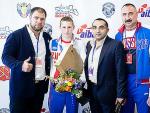

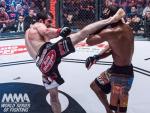
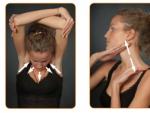
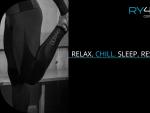
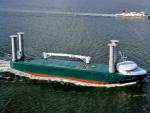
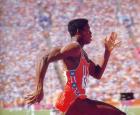 Fastest man in the world
Fastest man in the world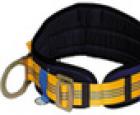 Descenders for industrial mountaineering Unicender - created by the Anglo-American company Morgan&Thompson
Descenders for industrial mountaineering Unicender - created by the Anglo-American company Morgan&Thompson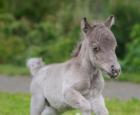 Possibly the smallest horse in the world was born in the Leningrad region Gulliver sets a record
Possibly the smallest horse in the world was born in the Leningrad region Gulliver sets a record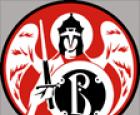 Boris Skripko: Bivol and Kovalev should easily win title fights Boxing commentator Boris Skripko biography
Boris Skripko: Bivol and Kovalev should easily win title fights Boxing commentator Boris Skripko biography